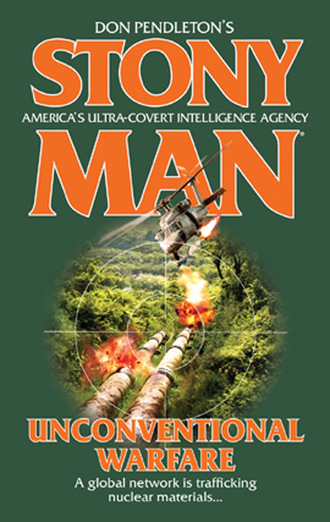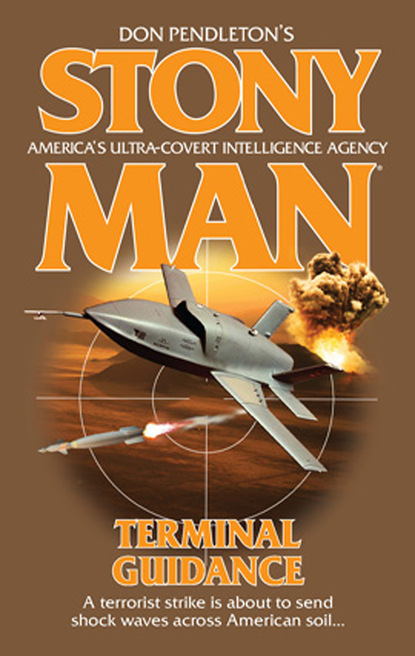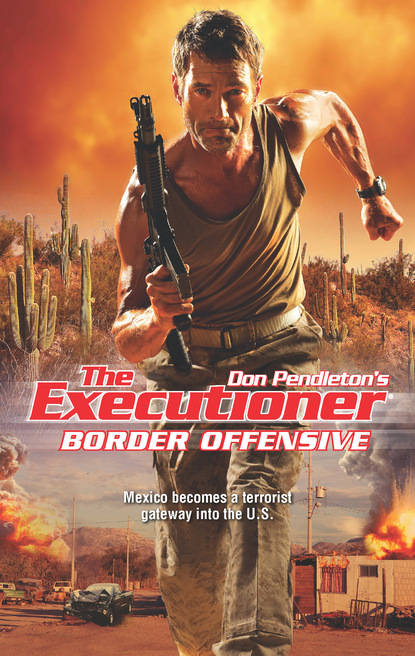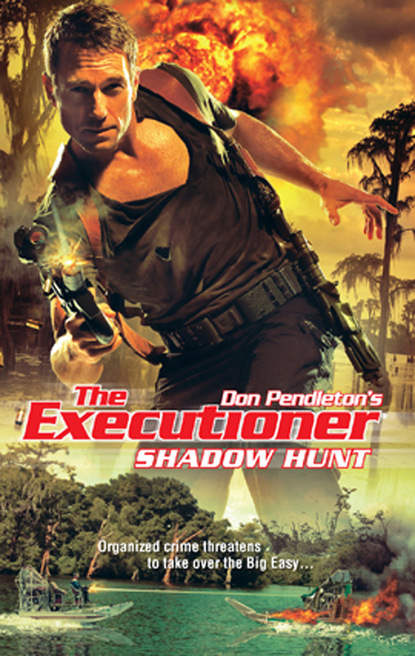
Полная версия
Unconventional Warfare

BARBARA PRICE RUSHED INTO THE ROOM
“Able is compromised,” she said without preamble. “They’re going deep black to Charlie Mike but we need to get them a new safe house in a less populated area and arrange resupply.”
“When it rains, it pours,” Kurtzman said.
“What?”
“I got a message from James on the ground in Brazzaville, text based.”
“Why text?”
“He couldn’t get a signal out, so he put a communication in the system for the repeater relay. It’s twelve minutes old. They were compromised on initial insertion. They think their Congolese police counterpart might have set them up.”
Akira Tokaido leaned back in his chair and whistled. “Phoenix under fire, Able on the run—this mission is blown right out of the gate.”
Unconventional Warfare
Stony Man ®
Americas Ultra-Covert Intelligence Agency
Don Pendleton

www.mirabooks.co.uk
CONTENTS
CHAPTER ONE
CHAPTER TWO
CHAPTER THREE
CHAPTER FOUR
CHAPTER FIVE
CHAPTER SIX
CHAPTER SEVEN
CHAPTER EIGHT
CHAPTER NINE
CHAPTER TEN
CHAPTER ELEVEN
CHAPTER TWELVE
CHAPTER THIRTEEN
CHAPTER FOURTEEN
CHAPTER FIFTEEN
CHAPTER SIXTEEN
CHAPTER SEVENTEEN
CHAPTER EIGHTEEN
CHAPTER NINETEEN
CHAPTER TWENTY
CHAPTER TWENTY-ONE
CHAPTER TWENTY-TWO
CHAPTER TWENTY-THREE
CHAPTER TWENTY-FOUR
CHAPTER TWENTY-FIVE
CHAPTER TWENTY-SIX
CHAPTER TWENTY-SEVEN
CHAPTER TWENTY-EIGHT
CHAPTER TWENTY-NINE
CHAPTER THIRTY
CHAPTER THIRTY-ONE
CHAPTER ONE
Beijing, People’s Republic of China
The Beijing Inn was a traditional structure nestled just beyond the more Westernized buildings of the international financial district. The architecture of the inn recalled China’s glorious past. Consisting of two stories under a peaked tile roof, the inn was divided into rooms of various sizes using internal support posts.
In a small room tucked away from the densely populated restaurant area sat Chao Bao, official of the clandestine Central Control of Information Division of the vast Ministry of State Security.
Bao sipped his tea, face inscrutable and emanating an air of timeless patience. While perhaps cliché to Caucasian sensibilities, his inner calm was authentic. At first glance he presented an unassuming figure. He looked younger than his forty-seven years, stood six inches over five feet and was built in a slight manner. His eyes were dark and unreflective, his hair thinning on top.
He could have been a tailor or perhaps an accountant.
On closer inspection a discerning eye would have noticed his build was not slight, but efficiently lean, supple as a leather whip. His knuckles were misshapen to chunks the size of dice by decades of martial-arts training.
He’d earned a reputation as a brutal interrogator of prisoners and as a virtual ghost on special-operations reconnaissance missions deep in enemy-controlled territory.
He was a practiced killer and as such, he was able to recognize that quality in others of his ilk. Even if he hadn’t already been intimately familiar with the personnel file of the man who now joined him in the quiet, shadowed alcove, he would have recognized a kindred spirit.
“Sifu,” Xi-Nan acknowledged.
“Valued friend.” Bao nodded. He gestured toward the empty padded bench across the low table from him in the private booth.
Despite being dressed in civilian clothes rather than a military uniform, General Xi-Nan was obviously a soldier. Tall for an ethnic Chinese at six feet, the commander of the Fifth Army was a fit man with a rigid posture ten years Chao Bao’s junior.
“Forgive my lagging manners,” Xi-Nan said. “But let us come to the point.”
His apology was perfunctory. He wasn’t sorry to drive straight to business without the culturally required period of idle talk. It was, in fact, the way he preferred to execute all his dealings, especially those involving the placid-faced man sitting across from him who seemed content sipping green tea from eggshell-porcelain cups.
Bao absolved him. “I understand your urgency. Please continue.”
“There is a complication with our African venture.”
“Somalia?”
“No, Congo,” Xi-Nan attested.
Bao lifted a single eyebrow and sipped his tea.
“Americans,” Xi-Nan further explained. “CIA or their NSA perhaps. They have compromised the periphery of our operation.”
“Then they must be stopped from gaining further insight.”
“Just so,” Xi-Nan agreed. “However I am afraid to use the Hayabusa on this. It would leave a paper trail.”
Hayabusa was the Mandarin word for “Falcon” and was used as the unofficial designation for the Chengdu Military Region Special Forces Unit.
Established in 1992, the unit specialized in target location and interdiction, airborne insertion, sabotage and rapid offensive strikes.
“A paper trail that could lead back to our personal Hong Kong bank accounts,” Bao finished the general’s thoughts.
“Exactly,” Xi-Nan agreed.
“You have a dossier for me?”
The corrupt general immediately slid a flash drive across the smooth teak table to the spymaster, who promptly pocketed the item.
“That is everything we know about the operations the Americans are calling the Niger Station,” he said.
Chao Bao smiled as he set down his empty teacup. The smile did not reach his eyes.
“Leave everything to me, old friend,” he said.
TWENTY MINUTES LATER Chao Bao arrived on the Beijing waterfront.
He lost himself among the twisting alleys and chaotic heavily populated fish markets until he found a dilapidated warehouse on an unassuming wharf. The building was nondescript and appeared abandoned with piles of rotting fishing nets and soggy old shipping pallets set on the oil-stained concrete loading dock.
Spray painted on the doors were the worn and peeling ideograms representing the Water Dragon Triad.
Bao entered the building and immediately three men armed with Type 64 Chinese submachine guns emerged from shadows. The street soldiers were flat-faced with black eyes that glittered with sinister light.
He countered their advance with a few simple words of identification and was allowed to pass unmolested into the inner sanctum of the triad gangster known only as Illustrious.
Bao stepped across the threshold and the door to the room was slammed shut behind him. The room was ornately furnished and uncomfortably warm, darkened to the point of gloominess.
Three brass braziers smoldered, providing a red-tinged light that served more to throw shadows than to illuminate. On a couch of red silk cushions, his face obscured by a demonic mask of black plaster, reclined Illustrious.
To his left, immobile as a statue, stood a massive bodyguard. Bao had once witnessed the giant execute a disobedient underling with a single well-placed punch to the back of the neck.
Bao stopped, brought his feet together and gave a respectful bow.
“Thank you for granting me an audience,” the intelligence officer said.
“How may Illustrious be of service?” the masked figure replied.
The mask was more than a petty affect designed to create an aura of mystery. The Communist Party ran the People’s Republic as a totalitarian police state and did not suffer organized crime lightly. There were many in Chao Bao’s own agency who would gladly see such a powerful underworld figure dead.
“It seems we have a situation,” Bao explained, “in Africa.”
“Yes?”
“I’m going to require the use of your Armenian connection.”
Ciudad Juárez, Mexico
THE JUÁREZ CARTEL had turned the city into a free fire war zone.
In the year leading up to August of 2009 the border city had the highest murder rate in the world. Chaos was rampant in the streets, and the police department was utterly ineffective, or completely corrupted, in the face of drug money and paramilitary criminal violence.
Bodies littered the streets. People were executed, abducted and assaulted on an hourly basis. Sexual predators and serial killers so afflicted the city’s female population that Amnesty International had become involved with international relief efforts to save the women.
Federal police and Mexican army troops deployed in huge numbers to the area in an attempt to restore order. The drug cartels responded by fighting an insurgency campaign with weapons every bit as powerful as those wielded by the military.
The U.S. sent money and resources to help combat the problem, but the warfare spilled across the border, causing a dramatic increase in kidnappings and gang violence in El Paso and as far west as Arizona.
The drugs still flowed north. In return, money flowed south. Many analysts claimed American firearms flowed south, as well. While this might have been true to a degree, the cartels combated each other, as well as the police and Mexican army, with military-grade hardware unobtainable by the citizens of the United States.
The wealth to be accrued was so great that corruption was systemic. It filtered its way up from street cops to judges to army generals and national politicians.
Like a disease passing so quickly it was pandemic, the stain of drug money spread into the heart of the Mexican government’s establishment.
This included the officers and agents of the Centro de Investigación y Seguridad Nacional, or National Security and Investigation Center, CISEN.
Forty-eight hours earlier a high-placed official in CISEN sold out the location of an undercover team of agents from the American Drug Enforcement Administration to members of the hyperviolent and brutally sadistic Juárez Cartel.
The bodies of the American law-enforcement officers turned up in a ditch near the border.
Their heads turned up hanging from light poles throughout the city.
Now the CISEN agent responsible for the betrayal was meeting with his cartel contacts to receive his payment.
Thanks to the digital intercept capabilities of the National Security Agency, Stony Man’s Able Team would also be attending the meet. Except the elite counterterrorist team would be gate-crashing.
THE ABANDONED FACTORY of the now defunct company Servicious Plasticos Ensambles stood alone in a massive dirt lot cluttered with garbage and rubble. Once the factory sweatshop had closed down, the city cut the power to that section of the grid.
Now the structural skeleton of the factory, along with the shantytown neighborhood surrounding it, lay covered in an utter darkness broken only by the occasional lantern in some black eye of a window. The lights of the better sections of Juárez glittered in the background.
Somewhere several blocks over, a woman began screaming in long, looping shrieks. A man’s voice broke in, shouting angrily.
Seconds later a staccato burst of automatic weapons fire broke out.
Then there was an abrupt silence broken a heartbeat later by the screech of tires.
Able Team emerged out of the darkness.
They moved fast, with a purpose and a lethal confidence hard earned. Like one of the U.S. Army’s small kill teams hunting the lonely stretches of highway outside of Baghdad, they emerged from the desert and disappeared again into shadow.
Night-vision goggles, DARPA-supplied next-generation AN/PVS-9 models, turned them into cyclopean silhouettes. Sound-suppressed M-4 carbines hung under jackets, silencer-equipped barrels pointed downward. Muscular torsos were sheathed in Kevlar-weave protective vests boasting ceramic inserts.
They wore backup silenced 9 mm pistols in shoulder rigs, and unmuffled .45-caliber Detonic Combat Master handguns were nestled in holdout holsters at the small of their backs. Fighting knives of surgical-grade steel were clipped to calves or forearms as weapons of last resort.
The stench of industrial pollution was a constant background miasma. Halfway across the dirt lot the smell was cut suddenly by the sharp putridness of rotting meat.
Alarmed, Carl Lyons, ex-LAPD homicide detective and Able Team leader, turned his head in the direction of the stink and saw a dead dog lying in a shallow depression. The NVG’s amplification of ambient light was so good he could see the squirming white mass of maggots covering the corpse.
Hermann Schwarz, former Army reconnaissance specialist and electronics genius, turned his head and spit the taste out of his mouth.
“This place has really gone to the dogs,” he muttered in a low voice.
Rosario Blancanales, former Special Forces soldier, opened his mouth to reply and suddenly froze. The unmistakable sound of a rattlesnake buzzed out of the bushes near his foot.
Lyons spun instantly, cursing softly. His head swiveled as he scanned with the NVGs, looking for the snake. Both he and Schwarz drew their Beretta 92-F pistols with 4-inch silencers screwed into the specially threaded barrels.
“Where is it?” Schwarz snapped.
“There.” Blancanales pointed to the ground at his feet.
Both of his teammates lifted their pistols but were too slow.
The Western Diamondback rattlesnake uncoiled like a trap going off, striking even as Blancanales tried dancing backward. It stretched out four feet and its blunt head rammed into the Puerto Rican’s leg with the force of a baseball bat.
“Jesus!” Blancanales grunted and staggered.
He felt the hot needle of a fang slide into his calf, and instantly agonized jolts of pain raced up and cut his breath off.
Schwarz and Lyons, using their NVGs, fired.
The snake blew into three separate chunks like a severed noodle. The squat, ugly head of the Diamondback hung for a moment from the top of Blancanales’s boot, then dropped off.
“Christing hell!” Blancanales swore.
“Sit down,” Schwarz said, moving to help his old friend.
“You have anything in the med kit to help?” Lyons demanded.
The ex-cop took a knee as he holstered his pistol. He swung his M-4 up and provided security. Blancanales sat heavily on the rubble-strewed ground and yanked his pant leg up out from where it was tucked into his boot.
“Like a snakebite kit? Antivenom?” Blancanales laughed. “Nope. Just the standard trauma stuff.” Ironically, the ex-Green Beret was the one most often charged with medical responsibilities on Able Team. “This is supposed to be an urban area, goddammit.”
Schwarz leaned over, turned on the IR penlight set on his night-vision goggles and illuminated the wound. Even in that uncertain light the leg was already obviously swollen. The puncture mark was a neat, red, raised hole leaking thinned-out blood.
“Looks like it only got you with one fang,” Schwarz observed. “The other one got caught on the leather of your boot top.”
“Let’s get him up and back to the vehicle,” Lyons said. “We’ll scrub the op.”
“Screw that, Ironman,” Blancanales said in a raspy voice. “Only one dose? It’s not that bad—I’ve got time. The poison isn’t that fast acting. I’ll be sick, sure. I’ll wish I could cut off my leg, but I’ve got hours before it’s really life-threatening. We are going to continue the mission.”
Lyons frowned, silently debating his responsibilities.
“You don’t have any antivenom,” he pointed out. “It’ll kill flesh.”
“The pendajos we’re here to hit put those DEA agents’ heads on poles, man. They put their heads on poles,” he repeated. “I’m not blowing this.”
“Is there anything we can do?” Schwarz interrupted before Lyons could object further.
“Sure,” Blancanales said. “Pressure dressing and an EpiPen. Shoot the Epi right into my leg above the bite.”
“What freaking good is that going to do?” Lyons demanded. “You going into shock?”
“No,” Blancanales denied. His body was covered with sweat. “But epi works as a vasoconstrictor. It’ll slow the spread of the venom.”
“I’m on it,” Schwarz said.
He saw Blancanales suddenly shiver despite the oppressive heat and he prayed the man was right.
“Fine,” Lyons agreed. “We’ll do it your way. But I want us back in our vehicle and we’ll swing around and come into the building on the other side. We’re not going to have you walking any more than necessary.”
Already sweating, Blancanales nodded. “Whatever you say, boss.”
CHAPTER TWO
Pan African Cross-Country Rally
Kenya
The dirt road cut a dusty brown seam through the rough terrain.
The Nissan 4x4 pickup tore along the road at break-neck speed, sheets of dust streaming behind it. The engine growled as the driver gunned it hard, putting it through its paces like a trainer working a racehorse.
The heavily modified off-road vehicle was painted black and yellow with heavy grilles placed over enhanced headlights. In the back, two extra wheels, jerricans filled with reserves of high-octane gasoline, motor oil and pioneer tools of ax, shovel and pick were strapped down in the bed.
David McCarter took his foot off the gas, slapped the clutch and shifted up out of third gear. He stutter-stepped back on the gas and the tricked-out pickup lunged forward, gaining speed.
The left front tire dropped into a pothole on the dirt track and the steering wheel jerked in his hands. He rode out the recoil and guided the truck out of the hole, his teeth clenched under his helmet against the jolt.
“Jesus Christ!” T. J. Hawkins protested from the passenger seat. “I think I just tasted my own balls!”
“If that were true you wouldn’t be complaining, mate!” McCarter shouted back.
The road turned in a brutal switchback, and the ex-SAS trooper casually used the emergency brake to slide around the turn. He released the brake and pushed the gas. The big knobby tires gripped the hard dirt, and the Nissan shot forward out of the fishtail.
“Screw you,” Hawkins replied.
The Texan was an ex-Army Ranger and ex-Delta Force commando. He held a Audiovox Jensen NVXM 1000 GPS system and was furiously working applications on the unit’s four-inch screen.
A Nexus Google phone set to speaker rested on his lap, providing communication uplinks to the support team. The device chirped and Gary Manning spoke up.
“How’s your engine temp, David?” the burly Canadian demanded. “My diagnostic uplink shows it climbing into the red.”
“Don’t be a bleeding wanker, you mother hen,” McCarter snapped. “I’m treating your baby fine.”
“You sure are different when you own the vehicle Dave’s driving instead of the U.S. government,” Hawkins pointed out, laughing.
“I’m a consultant, not an owner,” Manning argued. “But still, you blow an engine in the middle of the race and it’s over.”
“Mr. McCarter,” said a cool and utterly feminine voice, “this represents a significant investment on the part of my company.”
“Your company?” McCarter answered.
Up ahead a line of broken hills suddenly appeared in the windshield. To the west of the rocky ridgeline the terrain fell away into a deep, wide valley. A wall of dust cleared enough for the two Phoenix Force commandos to see the French racers of Team Gauloises in their Citroën Méhari running full-out ahead of them.
“Yes, Mr. McCarter,” Monica Fischer, CEO at North American, Inc., answered, “my company.”
“Maybe so,” McCarter snapped. “But I’m driving here!”
Just ahead of his pickup the French vehicle was a foot off his bumper. McCarter slammed the gas down and jerked his wheel to the side, running the Nissan up onto a wide shoulder. Rooster tails of sand spun out behind his grinding wheels as he gunned it past the Méhari.
He powered around the front of the French vehicle and snapped the pickup back onto the track, cutting off the Team Gauloises vehicle.
The Frenchmen shook their fists in anger but their shouted curses were lost to the roar of the big racing engines. Hawkins stuck his arm out the window and casually flipped them the bird as McCarter sped away.
“We’re coming up to the first branch here,” the Texan warned. “Have you got any better route intelligence to give us?”
There was a slight pause, then Manning, trailing behind the racing pickup in the team’s matinee vehicle, a stripped-down Suburban SUV, answered.
“Negative,” he replied. “I tried to get updated information about road conditions in the valley, but everybody around here is playing tight to the vest.”
McCarter snarled in frustration as the fork in the road appeared. To one side lay the road running through the hills while to the other was the track cutting across the valley.
The dirt road winding through the hills meant slower speeds and some climbing; it had, however, been thoroughly scouted before the race and was shorter. There would be little in the way of surprises.
The valley was flatter, allowing for faster driving that should also be easier on the vehicle. It would have been McCarter’s automatic choice in a race except that the racers hadn’t been informed of the option until an hour before the starting gun had gone off.
As such, the route was poorly marked, unscouted and about the only thing they knew for sure was that the road was cut several times by the 440-mile-long Tana River.
“Screw it,” McCarter mumbled and downshifted. “Let’s do the hills.”
“Ah, Christ,” Hawkins replied immediately. “You’re gonna shake my cherries right off their stem!”
“That’s what separates the rock stars from the groupies,” McCarter snapped.
He turned onto the hill road at the Y-intersection, going fast enough to fishtail sideways. Hawkins checked his passenger-side mirror.
“I guess you’re right,” he said, voice droll. “Because the French team just took the valley road.”
THE SUN SLID RAPIDLY toward the horizon, bringing on a rapidly gathering twilight.
Monica Fischer swore.
She fought with the power steering of the big Suburban chase vehicle as they drove flat out in an attempt to keep within striking distance of McCarter and Hawkins. Beside her in the passenger seat Manning was downloading a weather report from a commercial satellite service.
“Damn,” he muttered. “We’re getting a build up of nimbi in the highlands.”
“Nimbi?”
“Rain clouds. We have a pressure system stacking up against the mountains. There’s going to be rain before the night is out.”
“Great.” Fischer laughed. She glanced at her dashboard, then added, “We’re running low on fuel.”
Manning looked up from his screen. “Fine. Pull over and we’ll gas up while I tell David about the weather change.”
Monica pulled the heavy steering wheel to the side and guided the SUV off the road and under the slight protection offered by a grove of acacia trees. She shut off the engine and hopped out as Manning finished relaying the weather information to the racers.
Walking around back, he stepped up next to Monica as she pulled open the rear cargo doors. He hesitated as her arm brushed his. He could smell her very clearly next to him. It was a good smell. They both reached for the same jerrican of fuel.
“I got this, muscleman,” she teased. “You check the oil, we don’t want our engine temp to spike.”
“Sure,” Manning agreed, feeling slightly flustered. “Use the strainer,” he reminded her.
“This isn’t my first rodeo, cowboy.”












